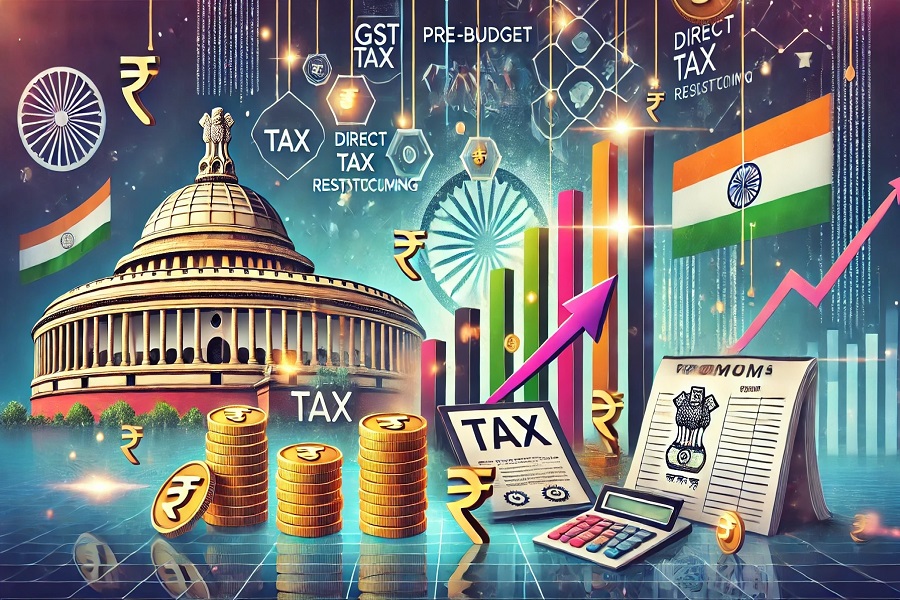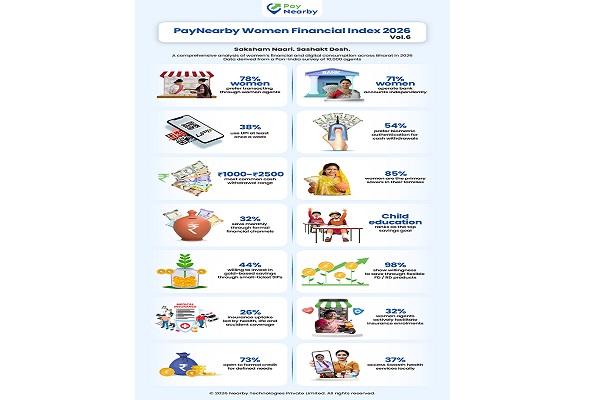Pre-Budget 2025: Key Expectations for Taxation Reforms in India

As the Indian government prepares for the Union Budget 2025, the spotlight once again falls on taxation reforms. The tax structure plays a central role in shaping the country’s economic landscape, influencing everything from business growth to consumer spending and government revenue. For both individuals and businesses, the pre-budget discussions are eagerly awaited, as they set the tone for policy direction in the coming fiscal year.
India’s taxation system, though streamlined in recent years, still has room for improvement. Over the years, successive governments have introduced various reforms to simplify the tax structure, reduce compliance burdens, and promote economic growth. However, as the economy continues to evolve, there are increasing calls for more progressive, transparent, and efficient tax policies.
With 2025 on the horizon, stakeholders—ranging from individual taxpayers to corporate giants—are looking for clarity on how the government plans to address critical issues such as direct and indirect taxation, income tax exemptions, and measures for tax compliance. The upcoming budget could introduce reforms that aim to boost investor confidence, stimulate economic growth, and address disparities in the current tax framework.
The Current Taxation Landscape in India
India’s taxation system is a mix of direct and indirect taxes, with the Goods and Services Tax (GST) acting as the cornerstone of indirect taxation. The Income Tax Act, which governs personal and corporate taxes, remains central to India’s fiscal policies. While the GST system has brought some level of standardization, challenges related to its implementation, tax evasion, and compliance still persist.
Direct taxes, particularly income tax, play a crucial role in generating government revenue. However, the tax rates and exemptions available to different income groups have been a topic of much debate. Despite efforts to reduce tax slabs and increase transparency, the system remains complex for many taxpayers, especially those in the informal sector.
Indirect taxes, mainly through GST, have simplified the tax process for businesses but have created challenges around compliance, especially for small and medium enterprises (SMEs) and the informal sector. Moreover, with the rise of digital transactions, there is an increasing need to address the taxation of e-commerce and online businesses, which currently operates in a grey area.
Key Expectations from Pre-Budget 2025 on Taxation Reforms
As the budget draws near, here are some of the key expectations for reforms in the taxation system that could bring positive changes for businesses, individuals, and the economy as a whole:
Reduction in Income Tax Slabs for Individuals
One of the most anticipated changes in the pre-budget discussions is a potential reduction in income tax slabs for individuals. While the current tax rates are progressive, with higher income brackets subject to higher taxation, there are calls to simplify the tax structure and offer relief to middle-income earners. Reducing tax rates or increasing the income threshold for different slabs would encourage consumption and help boost economic activity. This measure would provide immediate relief to salaried employees and small business owners.
Rationalization of Tax Exemptions and Deductions
The current tax system offers a plethora of exemptions, deductions, and rebates, making it complex for taxpayers to navigate. Simplifying these provisions could significantly reduce compliance costs and administrative burdens. There is a strong push for rationalizing exemptions related to investments, insurance, and housing, with an aim to bring more transparency and equity to the system. The introduction of universal tax rebates for lower-income groups could also be considered to support economic inclusivity.
Focus on Taxation of Digital Transactions
With the surge in digital transactions and the growth of the e-commerce sector, a key area of focus for Budget 2025 could be the taxation of online businesses. There is a growing need to introduce policies that bring digital transactions under the tax net without stifling innovation. The taxation framework could be adjusted to address challenges related to cross-border transactions, online retail, and the gig economy. Measures to prevent tax evasion and promote digital tax compliance could also be a priority.
Boost for Startups and MSMEs through Tax Incentives
The Indian startup ecosystem has witnessed significant growth in recent years, contributing to job creation and innovation. To further boost this sector, there are expectations for the introduction of additional tax benefits for startups and micro, small, and medium enterprises (MSMEs). These could include tax holidays, reduced corporate tax rates, and better access to funding through tax incentives. Streamlining the taxation process for small businesses could help them grow, create jobs, and become more competitive in both domestic and global markets.
GST Reforms and Simplification
While the Goods and Services Tax (GST) has transformed the taxation landscape, it still faces several challenges, particularly for small businesses. Simplifying GST filings, reducing compliance costs, and addressing the concerns of businesses in the informal sector are key areas of focus. There are calls for a single, simplified GST return form, and an easier method for small businesses to comply with the system. The government could also consider revising the GST rates on certain essential goods and services, particularly in light of the current economic situation.
Introduction of Capital Gains Tax Reforms
Another area of concern for investors and financial markets is capital gains tax. The current structure of long-term and short-term capital gains tax has created disparities and inefficiencies. There are expectations that Budget 2025 will introduce reforms aimed at bringing clarity to the taxation of capital gains, especially in the context of equities, real estate, and mutual funds. Measures such as rationalizing tax rates on long-term capital gains (LTCG) and short-term capital gains (STCG) could incentivize investment and provide stability to the markets.
Encouraging Green Investments through Tax Incentives
With growing focus on climate change and sustainability, the government may introduce new tax incentives for green and sustainable investments. This could include tax exemptions or deductions for businesses involved in renewable energy, electric vehicles, and sustainable infrastructure projects. Additionally, promoting green bonds and ESG (Environmental, Social, and Governance) investing through favorable tax policies could help India transition towards a more sustainable economy.
Conclusion
As India prepares for Budget 2025, the expectations from the taxation sector are high. The focus will be on simplifying the tax structure, providing relief to individuals and businesses, and addressing emerging challenges in the digital economy. A balanced and forward-thinking approach to taxation reforms can enhance compliance, promote economic growth, and foster an environment conducive to innovation and investment.
By introducing progressive tax policies that address the evolving needs of the economy, the government can drive inclusive growth, improve revenue collection, and support the transition towards a more modern, digital, and sustainable India. The decisions made in the upcoming budget will play a crucial role in shaping the future of India’s taxation system for years to come.























